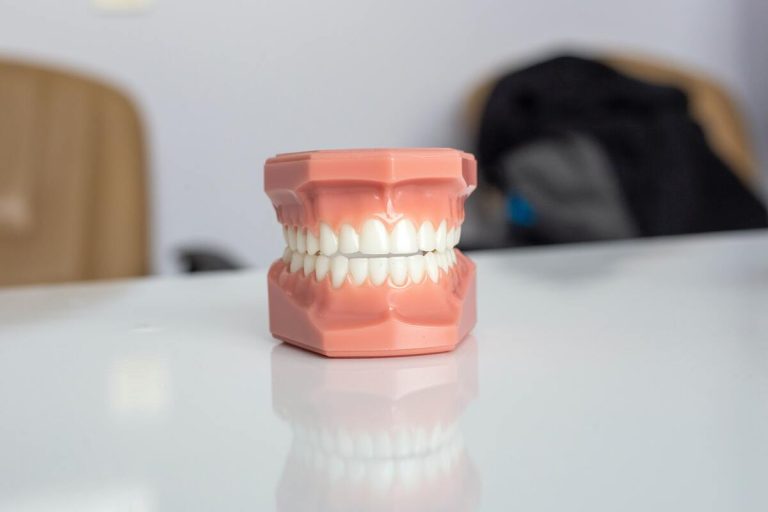Jaw deterioration is a common condition that affects many middle-aged people. While it can be mild and cause a few problems, in some cases, it can lead to severe pain and difficulty eating. If you’re concerned about jaw deterioration, here’s everything you need to know.
The human jaw composition
The human jaw is a complex and highly evolved feature, providing unparalleled strength and capability. Comparatively, the human jaw comprises the maxilla, or upper jaw bones, and palatine and sphenoid bones – which are connected at the Temporomandibular joint (TMJ). Additionally, the jaw is supported by an extensive system of muscles and ligaments that help it to function correctly.
Factors causing jaw deterioration
Although the human jawbone is relatively strong, its durability can be depleted if not correctly taken care of. Aging and poor oral hygiene can significantly reduce the resilience of the jawbone, leading to deterioration and even disfiguration in extreme cases. Genetic diseases that cause bone formation and structural abnormalities are known to afflict the jawbone.
This can have serious consequences, such as severely limited mouth mobility and the inability to properly bite/chew certain foods. To prevent any long-term effects on your jawbone, it is essential to maintain good oral hygiene habits and seek medical advice if abnormal symptoms become apparent.
Signs of Jaw Deterioration
Jaw deterioration is often accompanied by a variety of signs and symptoms, including:
- Pain or tenderness in the face, jaw joint area, neck, and shoulders
- Difficulty chewing or a sudden change in the way you bite
- A locked jaw that won’t open beyond a certain point
- Unusual swelling on one side of the face
- Limited range of motion while opening and closing your mouth
- Changes in the way your teeth line up when you bite
- Chronic headaches or facial pain
Problems caused by jaw deterioration
The deterioration of oral health can cause severe discomfort, often resulting in pain and difficulty eating. In cases of extreme tooth decay, the affected area may be so far gone that traditional dental solutions – such as fillings and crowns – will no longer be effective. Then, the only option might be extraction.
In extreme cases, dentures may no longer fit comfortably due to missing teeth or oral tissue damage, making them a less viable solution than they originally were. It is essential to take preventative measures to avoid dental problems such as these so that one can preserve their ability to eat and speak comfortably and their overall quality of life.
Preventing jaw deterioration
Your jaw plays a vital role in your overall dental health. It is essential to take steps to prevent or slow down the deterioration of your jawbone. Exercise can be incredibly effective in strengthening your jaw muscles and bones, especially when accompanied by a balanced diet rich in calcium and vitamin D.
Additionally, avoiding tobacco use is essential for maintaining the integrity of your jawbone since tobacco products are known to interfere with the ability of the bone tissue to heal itself. This is particularly important for those with a pre-existing condition such as periodontitis since it can worsen gum disease. Limiting the number of sugary foods and drinks you consume is also advisable, as they are known to cause cavities and plaque build-up.
Dental implants are one of the most effective ways to prevent jaw deterioration and restore functionality to the mouth that has been lost due to tooth decay and other problems. Dental implants involve placing a titanium post into the jawbone, connecting it directly to the missing tooth. Once this is done, an artificial tooth can be made and placed on top of the post, restoring functionality and aesthetics to the mouth.
Finally, regular visits to see a dentist are essential for ensuring the ongoing health of your jawbone. A qualified professional can provide invaluable advice and treatments that could save you from long-term damage or discomfort due to deterioration. Furthermore, any problems with your teeth can be identified and treated early on before they can become serious issues.

See your dentist or doctor for an evaluation
If you have jaw pain, it’s time to seek help. Your dentist or doctor can conduct a thorough evaluation to help assess the cause and diagnose your symptoms. There are several possible causes for jaw-related pain: TMJ disorder, teeth grinding or clenching, or even a sinus infection.
An accurate diagnosis is a key to receiving the care needed to alleviate any discomfort associated with jaw pain. Don’t wait until the pain worsens; make an appointment today and take an active role in your healthcare.
Jaw deterioration is a common problem that can lead to severe consequences. However, there are several ways to prevent or slow down the process. See your dentist or doctor for an evaluation if you are experiencing jaw pain or other problems.











